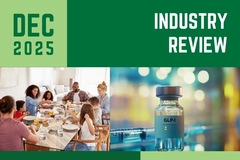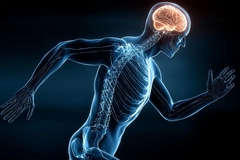
- Industry news
Industry news
Trending now
- Category news
- Reports
Trending now
- Key trends
Trending now
- Multimedia
Multimedia
Trending now
- Journal
- Events
Trending now
- Suppliers
Suppliers
Trending now
- Home
- Industry news
Industry news
Trending now
- Category news
- Reports
Trending now
- Key trends
Trending now
- Multimedia
Multimedia
Trending now
- Events
Trending now
- Suppliers
Suppliers
Trending now
South Korea cracks down on illegal sale of ‘study drugs’ and misleading supplement advertising

South Korea’s Ministry of Food and Drug Safety has uncovered hundreds of cases of false advertising and illegal online sales of “study-friendly” supplements, foods and drugs marketed to boost student’s focus ahead of college entrance exams.
The discovery has prompted a crackdown on misleading claims and unauthorized sales of nutritional supplements and medicine for test takers.
The governmental body warns: “Study-friendly medicine? Concentration-enhancing nutritional supplement? Beware of online false advertising and illegal sales.”
From October 15 to 25, commissioner Oh Kyung’s team investigated online advertising and sales that preyed on test-takers and parents’ anxiety in preparation for the 2025 College Scholastic Ability Test (CSAT), a test recognized by South Korean universities.
“In the run-up to the CSAT, false and exaggerated advertisements such as ‘nutritional supplements for test takers,’ [‘fatigue recovery’] and ‘memory improvement’ are being used to tempt test takers and their parents,” says Professor Baek Yu-jin of the Department of Family Medicine at Hallym University Sacred Heart Hospital.
‘However, it is important for test takers to control their own condition through regular eating habits right before the CSAT.”
 Online advertising and sales preyed on test-takers and parents’ anxiety.Rampant cognitive claims
Online advertising and sales preyed on test-takers and parents’ anxiety.Rampant cognitive claims
Within ten days, investigators examined 300 open markets selling food and health products, using search terms such as exam takers, memory, concentration and stress relief, with 83 cases of “unfair advertising posts.”
The Ministry also found 711 cases of illegal distribution and sale posts for ADHD treatment drugs containing methylphenidate (psychotropic drug) and amphetamine (not a domestically approved product), posed as “study drugs” or “concentration-boosting drugs.”
It believes such products are highly likely to be counterfeit drugs from clandestine sources and requested authorities to immediately block access to the sites next to administrative measures.
Professor Lee Hae-guk of the Department of Psychiatry at the Catholic University of Korea College of Medicine warns: “ADHD treatment drugs are intended to treat psychiatric disorders in which cognitive behavioral control functions, such as attention and concentration, are not sufficiently developed…They do not have the effect of further improving attention and concentration in undiagnosed normal people.”
“If a normal person who has not been diagnosed with ADHD takes it, it can cause side effects ranging from mild loss of appetite, increased heart rate, and headaches to severe cases of extreme insomnia, excitability, and temporary psychotic states such as hallucinations, so special care must be taken.”
The Ministry of Food and Drug Safety says it will continue to inspect and actively take action against such advertising and illegal acts that exploit examination anxieties to protect consumers.
 Flase advertisements claimed to sell nutritional supplements, fatigue recovery and memory improvement for test takers.Advertising to blame
Flase advertisements claimed to sell nutritional supplements, fatigue recovery and memory improvement for test takers.Advertising to blame
Investigators blame advertisements for causing consumers to be confused about functional foods and general foods. They found 44.6% of advertisements made unfair cognitive claims.
They also underscore exaggerated and false claims (39.8%) about improving concentration. This specifically means “advertisements may be mistaken or confused as health functional foods, such as ‘improving concentration,’ ‘protecting brain cells’ or ‘anti-aging,’ which are not recognized as health functional foods.”
The Ministry of Food and Drug Safety further blames advertisements claiming to prevent disease and have treatment effects (6%), violating the self-review of health-functional foods (6%) and causing confusion about medicines claiming to increase focus (3.6%). Medicines could refer to local yak and chongmyeongtang, which are multi-herbal formulas










